As a dog owner, you’ve probably faced irresistible eyes and a wagging tail when your furry friend sees you enjoying a bowl of Froot Loops.
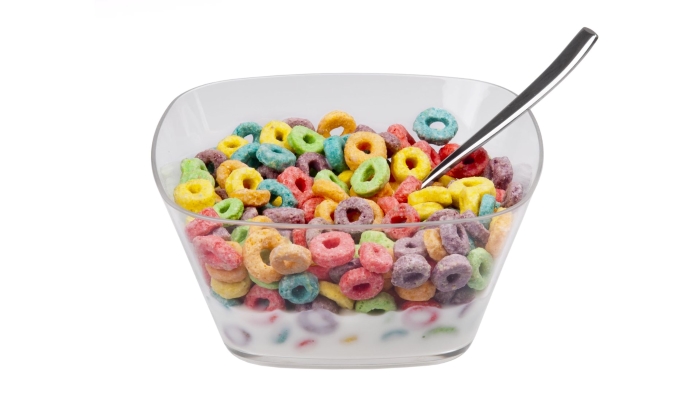
While sharing our food with dogs can be tempting, it’s crucial to understand which human foods are safe for our four-legged companions.
In this blog, we’ll explore whether dogs can eat Froot Loops and shed light on the importance of a canine-friendly diet.
Contents
What is Froot Loop
Froot Loops are a popular brand of colorful, fruit–flavored breakfast cereal produced by Kellogg’s.
These cereals are known for their distinctive, ring–shaped pieces that come in a variety of bright colors.
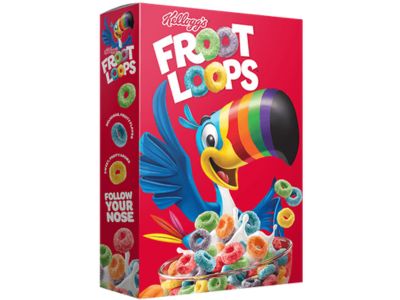
While they are marketed as having fruit flavors, they typically contain artificial flavors and colors rather than real fruit ingredients.
Froot Loops are sweet and crunchy, making them a favorite among children and adults for breakfast or snacking, but they are generally not considered a nutritious choice due to their high sugar content and artificial additives.
It’s important to note that Froot Loops are designed for human consumption and are not recommended as a food for dogs due to their unsuitability for canine dietary needs.
Can Dogs Eat Froot Loops?
The short answer is NO, dogs should not eat Froot Loops.
These colorful breakfast cereals are high in sugar, artificial flavors, and artificial colors, which are not suitable for dogs.
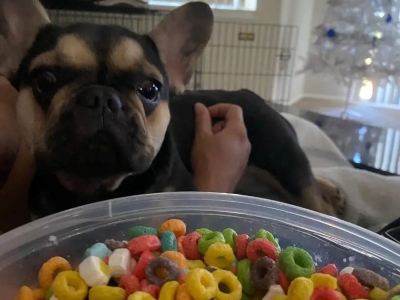
The nutritional needs of dogs are different from those of humans, and certain ingredients commonly found in human foods can be harmful to dogs.
Why Are Froot Loops Bad for Dogs?
Froot Loops may appear to be safe, but they contain numerous substances that are toxic to dogs.
Froot Loops are unhealthy for dogs for a variety of reasons, including:
Refined grains
Froot Loops are manufactured using refined grains such as corn flour, wheat flour, and oat flour.
Refined grains have been heavily processed, removing all of their inherent minerals and fiber.
They are also heavy in carbs, which can contribute to dog weight gain and diabetes.
Dogs do not require refined carbohydrates in their diet since high–quality animal proteins and lipids provide all of the energy and minerals they require.
Artificial colors
Froot Loops are noted for their vibrant colors, which appeal to both children and adults.
These hues, however, are not natural, but rather synthetic. Artificial colors are chemicals that are added to food to improve its appearance.
Some of these compounds have been associated in animals and people to behavioral issues, allergic responses, and cancer.
Dogs are unconcerned with the color of their food and do not require artificial colors in their diet.
Sugar
Froot Loops are incredibly sweet, which is one of the key factors contributing to their delicious flavor.
Simple carbohydrates like sugar give you a short energy boost but can cause your blood sugar levels to decrease quickly.
Additionally, sugar can harm your dog’s teeth and gums and cause obesity and diabetes.
Sugar should not be a part of a dog’s diet since it might be harmful.
Preservatives
In order to preserve food and keep it fresh longer, preservatives like BHT (butylated hydroxytoluene) are included in Froot Loops.
Preservatives can disrupt your dog’s normal digestion and metabolism, as well as cause cancer, liver issues, allergic reactions, and other health issues[1][2][3].
Dogs do not require preservatives in their diet since they may eat fresh, chemical–free food that is natural and unprocessed.
What Are the Symptoms of Eating Too Many Froot Loops?
There’s no need to freak out if your dog accidentally ate a few Froot Loops.
If you give your dog one or two Froot Loops sometimes, it won’t hurt them.
However, if your dog eats Froot Loops regularly or in big quantities, they could exhibit any of the following symptoms:
Stomach upset
Due to its high sugar and carbohydrate content, Froot Loops might upset a dog’s stomach[4].
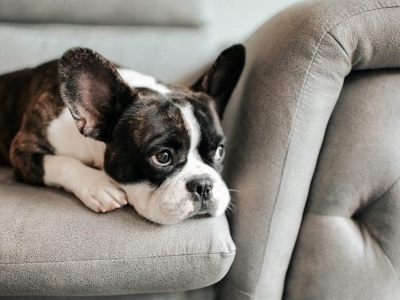
After consuming Froot Loops, your dog might develop stomach discomfort, nausea, vomiting, diarrhea, gas, or bloating.
Depending on the quantity and frequency of intake, these symptoms may persist for a few hours or days.
Weight gain
Froot Loops’ high calorie and carbohydrate content might make dogs gain weight.
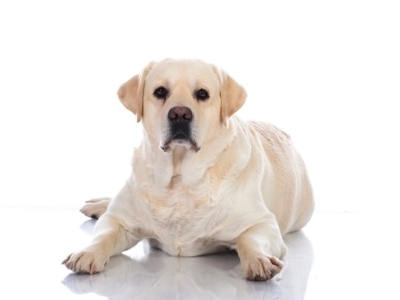
If your dog regularly consumes too many Froot Loops, they may grow to be overweight or obese.
Other health issues including joint discomfort, arthritis, heart disease, and diabetes may result from this.
Diabetes
Froot Loops can cause diabetes in dogs, due to their high sugar content.
Sugar can spike your dog’s blood sugar levels and cause insulin resistance over time.
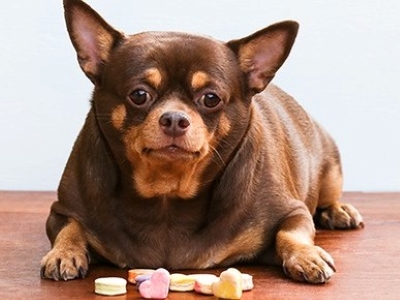
This means that your dog’s body cannot use sugar properly for energy and has to rely on fat instead.
This can lead to high blood sugar levels (hyperglycemia), low blood sugar levels (hypoglycemia), or both.
Diabetes can cause serious complications such as kidney failure, blindness, nerve damage, and death.
What Should You Do If Your Dog Eats Froot Loops?
If your dog eats Froot Loops by accident or curiosity, you should monitor them closely for any signs of distress or discomfort.
If your dog shows any symptoms of stomach upset or diabetes (such as vomiting, diarrhea, excessive thirst or urination), you should contact your vet immediately.
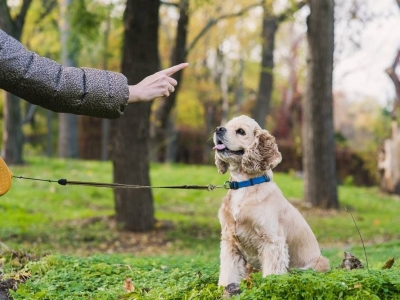
Your vet may exhort you to actuate heaving or provide your canine enacted charcoal to anticipate encourage retention of the sugar and chemicals.
Your vet may too perform blood tests to check your dog’s blood sugar levels and liver work.
Your vet may endorse medicine or affront to control your dog’s blood sugar levels and anticipate encourage complications.
If you know or suspect that your dog routinely consumes Froot Loops, stop immediately and replace it with a food that is balanced, healthful, and suitable for your dog’s age, size, and activity level.
In order to control your dog’s weight and avoid diabetes, you should also ask your veterinarian for help.
The Importance of a Dog-Friendly Diet
A dog-friendly diet is of paramount importance as it directly influences a canine’s overall health and well–being.
Proper nutrition ensures dogs receive the necessary nutrients for growth, immune system support, and organ function[5].
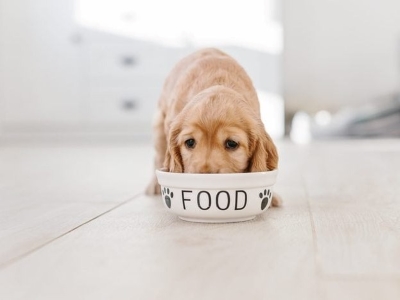
It also aids in weight management, preventing issues like obesity and related health concerns.
Additionally, a balanced diet promotes dental and digestive health, a shiny coat, and sustained energy levels, contributing to a longer and happier life for our beloved four-legged companions.
Consulting with a veterinarian for tailored dietary recommendations is key to meeting a dog’s specific needs and ensuring they thrive throughout their life.
What Are Some Healthy Alternatives to Froot Loops?
Your dog should not eat Froot Loops, but there are some healthy options you may give them in its place.
Here are some illustrations of nutritious treats you may give your dog:
Fresh fruits
Your dog may get a lot of vitamins, minerals, antioxidants, and fiber from fresh fruits.
They can keep your dog hydrated and happy while being minimal in calories and sugar.
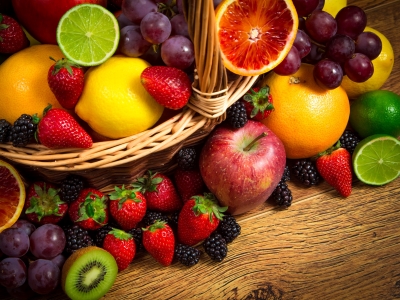
Apples, bananas, blueberries, strawberries, watermelon, and cantaloupe are a few of the greatest fruits for dogs.
Fruits with a lot of sugar or seeds or pits, including grapes, raisins, cherries, or peaches, should be avoided.
Fresh vegetables
Another excellent source of fiber, antioxidants, vitamins, and minerals for your dog is fresh produce.
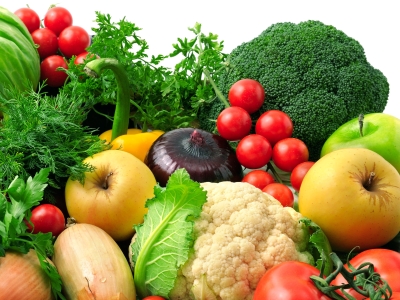
They can keep your dog satisfied and healthy because they are minimal in calories and carbs.
Carrots, celery, cucumber, green beans, broccoli, and spinach are a few of the healthiest veggies for dogs.
Avoid vegetables like potatoes, maize, onions, garlic, and mushrooms that are heavy in starch or contain toxins.
Plain yogurt
Probiotics, enzymes, calcium, and protein are all important nutrients for your dog’s diet in plain yogurt.
The digestion and immunity of your dog can be strengthened, and yeast infections can be avoided.
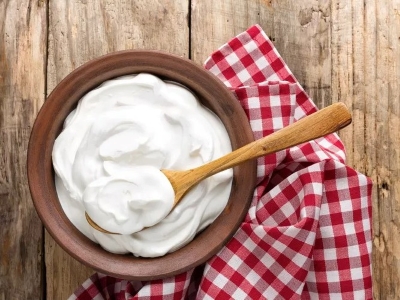
Choose low-fat or fat-free plain yogurt that doesn’t have any artificial flavors or extra sugar.
In order to make the yogurt more enticing and nourishing for your dog, you may also add some fresh fruits or vegetables.
Peanut butter
Your dog can get enough of protein, healthful fats, and vitamin E from peanut butter.
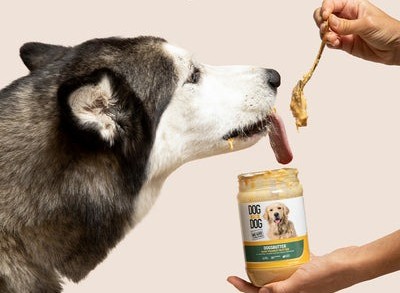
It can increase your dog’s activity level, improve the quality of his coat, and stimulate his mind.
Choose natural, unsalted peanut butter that doesn’t have any sugar or artificial sweeteners (like xylitol) added to it.
To keep your dog occupied and content, you may also put some peanut butter inside a hollow bone or a Kong toy[6].
FAQs
Are all human cereals unsafe for dogs?
Not all human cereals are unsafe for dogs, but it’s important to be cautious. Most cereals designed for humans are not suitable for dogs due to their high sugar, salt, and artificial ingredient content. It’s always best to choose dog-specific treats or snacks to ensure your pet’s safety.
What should I do if my dog accidentally ate Froot Loops?
If your dog has ingested a small amount of Froot Loops, it’s generally not an emergency. Monitor your dog for any signs of gastrointestinal distress, such as vomiting or diarrhea. If you notice any unusual symptoms or if your dog consumed a significant quantity, contact your veterinarian for guidance.
Yes, there are some human foods that can be shared with dogs in moderation. These include lean meats (cooked without seasoning), plain cooked rice, plain yogurt (with no added sugar), and certain fruits and vegetables. Always check with your veterinarian to ensure the safety of any human food you plan to share with your dog.
How can I provide my dog with a healthy diet?
To provide your dog with a healthy diet, choose high-quality commercial dog food that is appropriate for their age, size, and activity level. Follow the recommended feeding guidelines on the packaging and avoid feeding them human foods that are high in sugar, salt, or artificial additives. Regular vet check-ups can also help ensure your dog’s dietary needs are being met.
Can I train my dog with Froot Loops as a reward?
It’s not recommended to use sugary cereals like Froot Loops as training rewards. High-value dog treats specially designed for training are a better choice. These treats are usually small, low-calorie, and formulated to be enticing to dogs without compromising their health.
Conclusion
The fact that Froot Loops include processed grains, artificial colors, sugar, and preservatives, which can lead to a number of health issues for your dog, makes them a bad option.
If your dog accidentally or out of curiosity consumes some Froot Loops, you should keep an eye out for any symptoms of diabetes or upset stomach.
If you know or suspect that your dog consumes Froot Loops on a daily basis, stop providing them Froot Loops right once and replace them with a diet that is suitable for their age, size, and activity level.
Instead of Froot Loops, you might give your dog fresh fruit, veggies, plain yogurt, or peanut butter, among other wholesome options.
Your dog may stay happy and healthy by enjoying these goodies, which are nourishing and delightful.
I hope you enjoyed reading this blog post on Can Dogs Eat Froot Loops.
Thank you for reading!
Reference:
- Understanding Your Dog’s Metabolism | Hill’s Pet. Hill’s Pet Nutrition
- Cancer in dogs: What to know | WebMD
- Liver disease in dogs | PetMD
- Gastroenteritis in dogs | VCA Animal Hospital
- Development of dog immune system | Veterinary Sciences
- Can Dogs Eat Crunchy Peanut Butter | DogLikesBest

Dania is a dog groomer living in California, who loves styling dogs. She often uses dog accessories to keep them distracted while grooming. She is also a dog parent to a Pomeranian, Duke. It’s because of him she is always on a lookout for the best dog foods, toys, other dog accessories, and ways to keep him equipped, healthy and happy.


